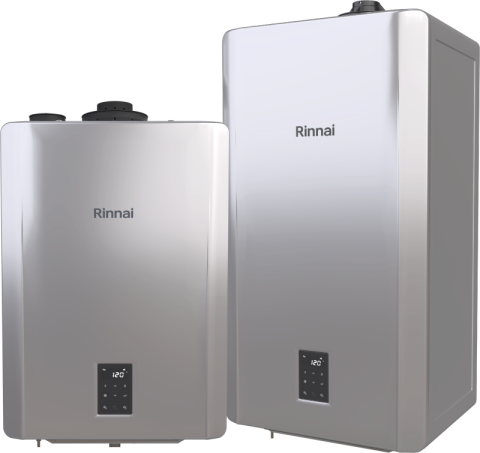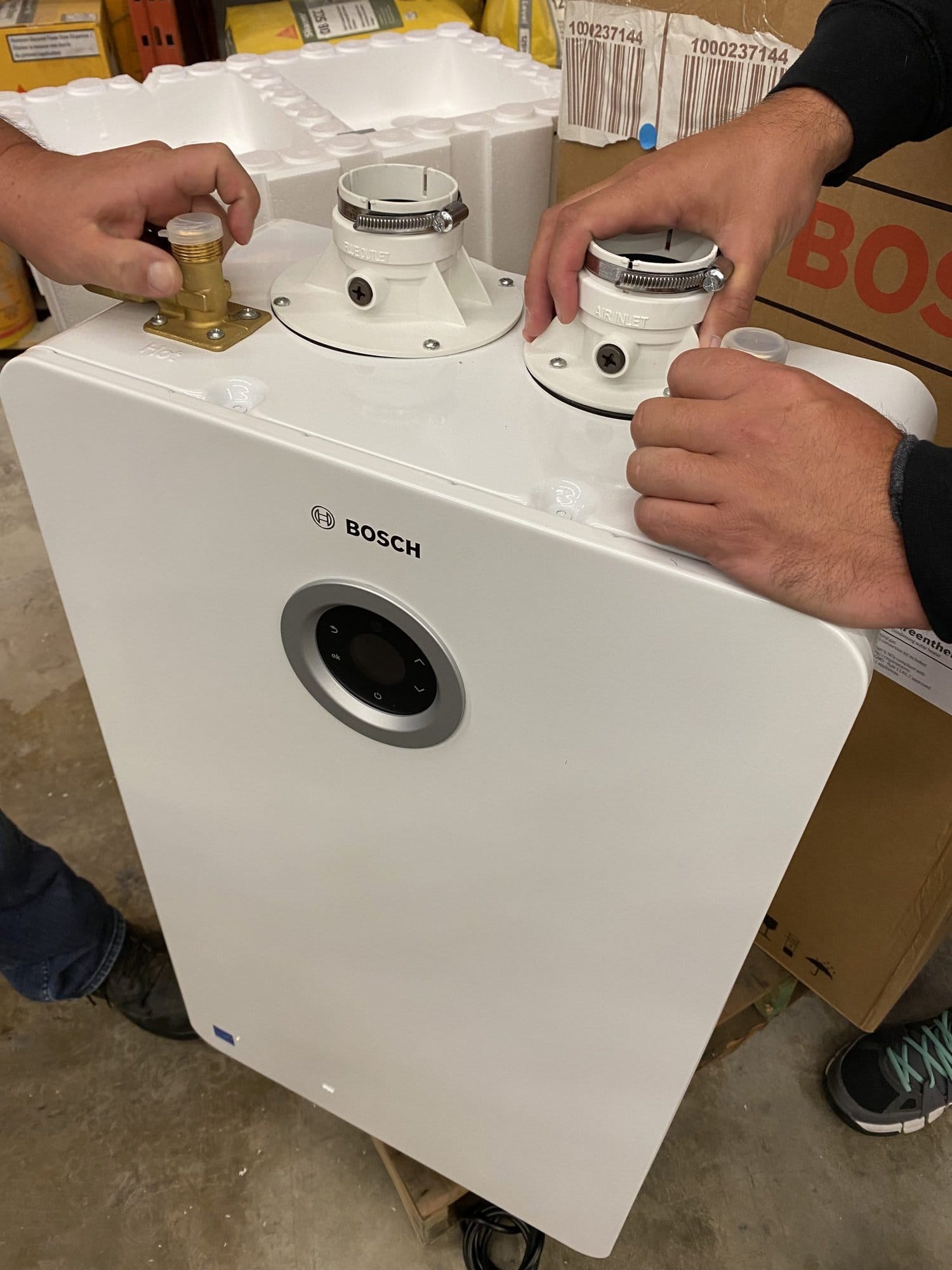We've come across this great article about Why You Should Consider a Tankless Water Heater down the page on the internet and think it made perfect sense to discuss it with you over here.

In a world where ease and efficiency reign supreme, it's not a surprise that house owners are regularly on the lookout for smarter means to manage their home's energy usage and comfort. One advancement that has actually continuously obtained popularity is the tankless hot water heater. Yet exactly what makes these systems attract attention from the traditional tank-based designs the majority of us matured with? Let's dive in and discover the benefits of tankless water heaters, assisting you make a decision if it's time to make the button in your house.
Intro
Photo this: you step into the shower after a long day, expecting a comforting cascade of warm water, only to be greeted by icy beads since the last individual utilized all of it up. Noise acquainted? Typical hot water heater store a set amount of hot water, meaning you go to the grace of that tank's supply. Tankless systems, on the other hand, heat water on demand. Say goodbye to running out mid-shower, say goodbye to fumbling with schedules simply to make sure hot water is readily available.
Comprehending Tankless Water Heaters
What Are Tankless Hot Water Heater?
Tankless hot water heater, often called on-demand or instantaneous water heaters, offer hot water only as it's required. As opposed to storing gallons of pre-heated water, these devices kick into action the minute you activate the tap. Water goes through a warm exchanger, warming up in real-time, meaning you obtain an undisturbed flow of warm water without the requirement for a large tank resting idly by.
Just how Do They Differ from Typical Equipments?
Typical heating units hold a reservoir of hot water, using energy to keep that storage tank at a consistent temperature level. Tankless devices get rid of the standing supply, cutting down on lost energy and the large footprint of a large cylinder. Essentially, you're upgrading from a "accumulation" state of mind to a "made-to-order" strategy.
Usual Types of Tankless Units
Tankless water heaters typically can be found in two ranges: gas and electric. Gas models tend to supply greater circulation prices, ideal for larger households, while electric models usually offer smaller sized homes and are typically much easier to set up. Additionally, some systems are designed for point-of-use (serving one component) while others can take care of the whole home's hot water demands.
Trick Advantages of Tankless Water Heaters
1. Countless Warm Water Supply
Ever before had to schedule showers so everyone obtains their fair share of hot water? With tankless, that becomes a distant memory. As long as the heating unit's circulation capability isn't surpassed, you can take back-to-back showers without developing into a popsicle.
2. Energy Effectiveness and Price Cost Savings
No more warming a giant container's well worth of water and maintaining it warm all day. Tankless heating systems reduce standby power losses, which can lower utility costs. While the preliminary cost might be higher, the long-lasting savings commonly justify the investment.
3. Space-Saving Style
If your home is short on storage space, removing the cumbersome container liberates important space. Tankless systems are small and can typically be mounted on walls, tucked away in corners, or mounted in limited utility wardrobes without hogging the entire area.
4. Longer Life expectancy
A properly maintained tankless hot water heater can outlast its tank-based cousin. Standard tanks may last 10-15 years, while tankless designs can maintain chugging along for two decades or more, making them a solid financial investment gradually.
5. Improved Water High Quality
Keeping water in a tank can occasionally lead to debris accumulation or a somewhat "off" taste. With tankless systems, fresh water is heated up right away, minimizing the chances of sediment buildup and possibly offering cleaner-tasting water.
Factors to consider Before Switching
Though the advantages are engaging, it's important to consider a couple of aspects prior to fully committing.
Initial Investment Expenses
Tankless heating units generally feature a higher in advance price. In between the system itself and prospective installment adjustments, the first price could provide you sticker shock. However remember to see it as a long-lasting investment.
Setup Needs
Depending on your home's facilities, you might need added electrical capability or gas line upgrades. Guarantee you understand the setup demands and consult with an expert to stay clear of shocks.
Examining Your Home's Water Use Patterns
If your household simultaneously utilizes numerous components with high warm water demand, make certain the unit's circulation rate satisfies your requirements. Recognizing your use patterns helps you choose the right dimension and kind of tankless heating system.
Upkeep and Care Tips
Tankless systems are relatively low maintenance, but they aren't set-it-and-forget-it appliances.
Normal Cleaning and Descaling
Hard water minerals can build up in the heat exchanger, impacting efficiency. Regular descaling (often recommended yearly) maintains the system performing at peak performance.
Annual Expert Inspections
A yearly checkup from a professional makes certain minor concerns are captured early. They'll assess the system's efficiency, try to find leaks, and help maintain optimum performance.
Ensuring Appropriate Ventilation
For gas models, proper ventilation is vital to securely remove exhaust gases. See to it airing vent systems are clean and properly set up to stop any kind of potential safety threats.
Contrasting Different Brands and Designs
Not all tankless water heaters are developed equal.
Investigating Trustworthy Producers
Look for reliable brands with a history of generating top quality devices. A reliable maker commonly gives far better client support and longer warranties.
Reading Reviews and User Responses
Individual evaluations and feedback from next-door neighbors or buddies that have gone tankless can supply useful insights. Occasionally, real-life experiences can be much more telling than advertising and marketing pamphlets.
Installment: Do It Yourself or Specialist?
While some homeowners enjoy dealing with tasks themselves, tankless installment could not be the most effective time to break out the tool kit.
Pros and Cons of DIY Installation
A DIY set up might save money, however it includes threats. Wrong installation can result in inefficiency or safety and security issues. If you're handy and have experience, it could be viable-- but wage caution.
When to Call a Specialist Plumbing Technician
For the majority of, calling a pro ensures whatever's done correctly. A specialist plumbing understands regional codes, sizing requirements, and venting specifications, reducing the risk of mishaps.
Taking full advantage of Effectiveness
You have actually bought a tankless unit-- now maximize its effectiveness.
Optimal Temperature Level Setups
Many people establish their units between 120-140 F. Readjusting the temperature level can improve comfort and financial savings. Experiment to locate a sweet spot that does not waste energy.
Pairing with Low-Flow Fixtures
Intend to stretch your system's capabilities? Think about mounting low-flow showerheads and taps. They decrease water use, allowing your tankless system to provide a steady stream of hot water without straining.
Environmental Impact
Tankless hot water heater align with greener living objectives.
Decreased Carbon Impact
By utilizing much less power and only heating water as required, tankless systems can reduce your home's carbon impact, decreasing your environmental effect.
Conserving Natural Resources
Less power intake and less thrown away hot water convert into fewer natural resources being used, an ecological win-win.
That Profits Most from Tankless Heating units?
The elegance of tankless heaters is that they can fit a variety of houses.
Large Family Members vs. Single Residents
Huge families may like the limitless warm water supply, while solitary owners appreciate the energy cost savings from not heating an entire tank for simply a single person's early morning shower.
Home Owners with Restricted Space
If your home is short on square video, shedding the bulky container liberates area for other basics-- or perhaps just extra breathing space.
Eco-Conscious Customers
Going tankless aligns with eco-friendly worths, ensuring you're not throwing away power or sources.
Future Fads in Tankless Hot Water Heater
The world of home appliances is ever-evolving, and tankless water heaters are no exception.
Smart Home Integration
Picture adjusting your water heater's temperature via an app or getting upkeep signals on your phone. As clever home tech breakthroughs, we'll see even more connectivity and benefit.
Developments in Modern technology
R&D is constantly improving heat exchangers, making systems more reliable and sturdy. Future models might be also quieter, much more compact, and better suited for varying climates.
Final thought
Selecting a tankless hot water heater is more than just upgrading your home's hot water system; it's buying lasting comfort, power efficiency, and a greener way of life. By considering your home's water usage, being mindful of setup requirements, and dedicating to regular upkeep, you can enjoy a constant stream of warm water without the luggage of a large tank. As innovation evolves, you can anticipate also smarter, extra efficient tankless services that not just make your life simpler however also profit the world.
Why You Should Consider a Tankless Water Heater for Your Home
Energy Efficiency and Cost Savings
Tankless water heaters, also known as on-demand water heaters, heat water only when needed. This means they don't waste energy keeping a tank of water hot constantly. This efficiency translates into substantial cost savings on your monthly energy bills.
Endless Hot Water Supply
One of the significant advantages of tankless water heaters is their ability to provide a continuous supply of hot water. Traditional tank water heaters have a limited capacity and can run out of hot water, especially during peak usage times. In contrast, tankless water heaters can provide an endless stream of hot water, making them ideal for larger families or homes with high water usage.
Space-Saving Design
Tankless water heaters are compact and take up significantly less space compared to traditional tank heaters. They can be installed on walls, under cabinets, or even outside, freeing up valuable space in your home. This makes tankless water heaters a great option for smaller homes or properties with limited space for a traditional water heater.
Longer Lifespan and Lower Maintenance
Tankless water heaters typically have a longer lifespan compared to traditional tank heaters. They can last up to 20 years or more with proper maintenance. Additionally, tankless systems are designed with replaceable parts, which can extend their lifespan further and reduce long-term maintenance costs.
Environmentally Friendly
Reducing energy consumption not only saves you money but also benefits the environment. Tankless water heaters contribute to a smaller carbon footprint by using less energy to heat water. Their energy efficiency and ability to minimize standby heat loss make them an eco-friendly choice for environmentally conscious homeowners.
Customized Temperature Control
Tankless water heaters offer precise temperature control, allowing you to set the desired temperature to meet your specific needs. This level of customization ensures you always have water at the perfect temperature for your comfort and usage requirements.
https://beantownservices.com/blog/consider-tankless-water-heater-for-your-home

I hope you enjoyed reading our piece about Unveiling the Hot Trend: The Benefits of Tankless Water. Thank you for finding the time to read through our content. Those who enjoyed our blog entry please consider to pass it around. We value your readership.
Book My Estimate